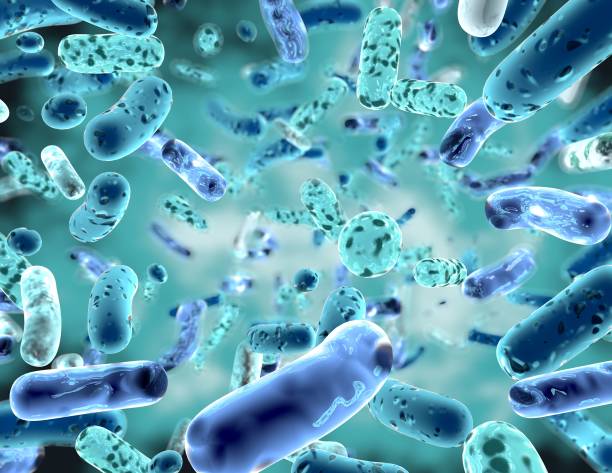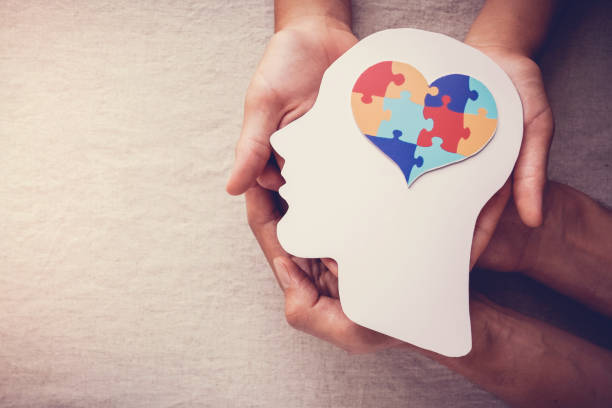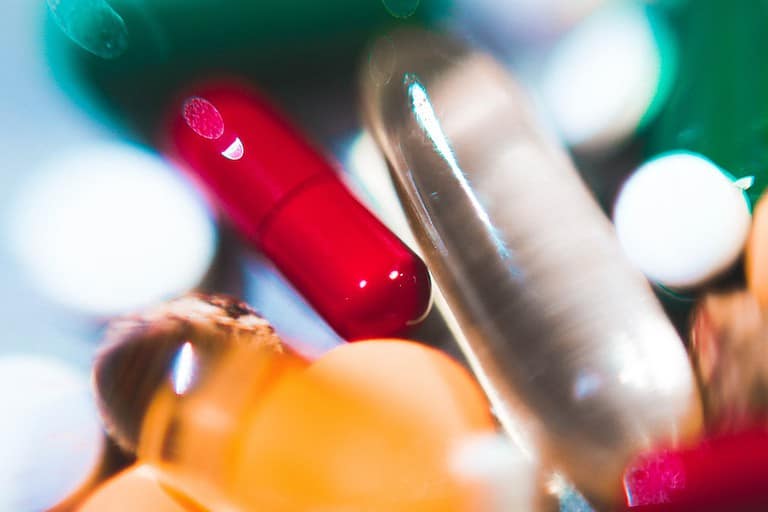What Are Psychobiotics? Know Its Health Benefits and More!
The modern family is constantly looking for ways to improve their mental and physical health, but have you ever considered the power of psychobiotics? What are psychobiotics? Psychobiotics are a relatively new field that studies how gut bacteria can affect our mental health.
This article will delve into psychobiotics, analyze how gut flora relates to mental health, evaluate the potential advantages of these treatments for general health, and examine psychobiotic research as part of an overall wellness strategy. So if you’re curious about what are psychobiotics, read more.
Table of Contents
Understanding Psychobiotics
Psychobiotics, a combination of probiotic and prebiotic elements, may affect our mental state by interacting with the gut microbiome. They are beneficial bacteria that help promote mental health, reduce stress pathology, and improve overall health. Studies indicate that psychobiotics may be a factor in preserving mental health, possibly by influencing the connection between the brain and digestive region known as the gut-brain axis.
What Are Psychobiotics?
Psychobiotics are live microorganisms that produce neuroactive compounds when they come into contact with certain substances in the gastrointestinal tract. Psychobiotics produce neuroactive compounds that interact with receptors in the brain and gut, thus affecting mood and behavior. Bifidobacterium longum, a popular psychobiotic, has been examined for its potential impacts on mental states such as fear and sadness, brain function like recollection and thought process, and alleviation of discomfort, among other things.

(Source)
How Do They Work?
Psychobiotics’ exact modus operandi is still a bit of a mystery, yet it’s thought that they may have an effect on neurological processes by altering inflammation pathways and serotonin production within the body. Studies have demonstrated that consuming these beneficial bacteria can lead to decreased cortisol levels – a hormone released during stressful situations – helping to manage anxiety or depression associated with such times.
Evidence suggests that psychobiotics may be beneficial in treating several mental health conditions, though further research is necessary to determine their efficacy. However, further research is needed before confirmation about their effectiveness in treating specific symptoms or disorders related to mental health problems.
Psychobiotics may be a revolutionary development in comprehending the interplay between the gut and mind. Investigating the bond between gut microbiota and psychological health can provide further insight into psychobiotics.
The Gut Microbiome and Mental Health
The relationship between gut microbiota and brain functioning is well established. Evidence suggests that an imbalance or lack of beneficial bacteria in the gut can result in psychological issues such as anxiety, depression, and other psychiatric disorders. Studies have demonstrated that the correct balance of bacteria in the gut can enhance cognitive performance, while an imbalance or lack thereof may be associated with mental health issues such as anxiety and depression.
Immune cells secrete proteins known as inflammatory cytokines, which are now thought to be involved in the communication between the gut microbiome and the brain. Recent research suggests these molecules also affect communication between the gut microbiome and the brain.
An imbalance in inflammatory cytokines can cause changes in behavior and psychological distress. It is hypothesized that psychobiotics – consisting of live microorganisms – may adjust this system by reestablishing a sound proportion of helpful bacteria and lessening degrees of pro-inflammatory molecules.
Hormones such as serotonin and dopamine help regulate emotions like happiness and contentment. An increase in their production could potentially improve moods overall. Furthermore, studies suggest that taking probiotics could reduce stress pathology by decreasing cortisol that elevates during periods of intense emotional strain or distressful events such as trauma or loss.
The microbial population in the gut can be complicated and intricate, potentially having deep-reaching consequences for psychological health. Therefore, it is important to understand the role of psychobiotics in promoting positive mental health outcomes. Investigating the advantages of psychobiotics for psychological health may enable us to effectively address, or even forestall, some issues connected with poor cognitive performance.
Benefits of Psychobiotics for Mental Health
Psychobiotics is receiving more nods as a possible therapy for psychological health issues. Research suggests that probiotic supplements may improve mood in healthy individuals, and psychobiotics might be able to restore the gut barrier function while reducing pro-inflammatory cytokines and glucocorticoids, potentially leading to mental health benefits. It suggests that dietary changes or “psychobiotic” supplements filled with beneficial bacteria could help treat various mental health issues.
Evidence gathered indicates that psychobiotics can have beneficial impacts on one’s disposition. Studies show that taking probiotic supplements increases serotonin, improving happiness and satisfaction.
Some strains of bacteria found in these supplements can also help regulate stress hormones like cortisol, leading to better overall emotional health. A research project involving healthy participants revealed that those who ingested probiotics reported enhanced emotional states compared to those not taking the supplement.

(Source)
Another benefit of psychobiotics is their potential use as a treatment for mental health disorders such as depression and anxiety. Several studies have demonstrated reduced symptoms among participants after taking probiotic supplements over an extended period of time.
A particular strain, dubbed Bifidobacterium longum NCC3001, has been found to be efficient in lessening signs of major depressive disorder (MDD) among individuals. Furthermore, research shows that regular intake of this strain may even lead to remission from MDD over time without any other intervention.
In conclusion, beneficial bacteria may be viable for decreasing stress and elevating mood in healthy individuals and those experiencing MDD. As researchers continue to study how specific bacterial strains interact with our brains, we may soon see increased utilization of these natural remedies for treating common psychological conditions. Moving forward, we will look at the evidence that supports using beneficial bacteria to reduce stress pathology and lower cortisol levels with probiotic intake.
Research on Psychobiotics
The exploration of psychobiotics is rapidly expanding and could have a huge impact on mental health treatments. Evidence suggests beneficial bacteria, such as bifidobacterium longum, can reduce stress-related pathology in mice and people.
A recent exploration revealed those consuming probiotics had lessened cortisol concentrations in a tense situation than those who didn’t consume them. It could potentially help alleviate symptoms related to anxiety disorders and other mental health problems by reducing the body’s response to stressors.
The gut microbiome, a complex assembly of microorganisms living in the digestive tract, is vital to our physical and psychological health. Studies have suggested that disturbances to the microbiome can be linked with a heightened danger of specific afflictions such as depression and anxiety. It appears that introducing beneficial bacteria into the system may be able to restore this balance and provide relief from these conditions.
Although more research is needed to draw definitive conclusions about the efficacy of psychobiotics in treating psychological disorders, many people have already reported positive results from trying them out. For now, though, it looks promising enough that many people are already trying out different types of psychobiotics with positive results.
So if you’re looking for an alternative way to manage your stress levels or treat your mental health issues, don’t discount the power of probiotics.
FAQs in Relation to What Are Psychobiotics
What are Psychobiotics?
Psychobiotics are living microorganisms that, when ingested, have a beneficial influence on psychological well-being. They can help reduce anxiety, depression, and stress by modulating the gut-brain axis.
Psychobiotics may also improve cognitive performance, memory, and focus while helping to regulate moods. In addition, they can help boost immunity and digestive health and provide anti-inflammatory benefits to the body.
What do Psychobiotics do?
Psychobiotics help the body produce hormones like serotonin, dopamine, and GABA that regulate emotions, stress levels, sleep patterns, and energy to reduce anxiety or depression symptoms while improving focus and memory. Research indicates that psychobiotics may be advantageous in lessening anxiety and depression signs, and improving attention span and recall.
Conclusion
It is clear that psychobiotics have the potential to be a powerful tool for improving mental health. Early studies on what are psychobiotics have yielded promising results, and further research into psychobiotics is ongoing. It’s important to remember that psychobiotics should not replace traditional treatments like therapy or medication, eventhough they can offer an additional layer of support and may help improve overall well-being.
Discover the power of psychobiotics and unlock a healthier, more independent lifestyle with Smart Living Now. Get access to exclusive resources today and start living your best life!



